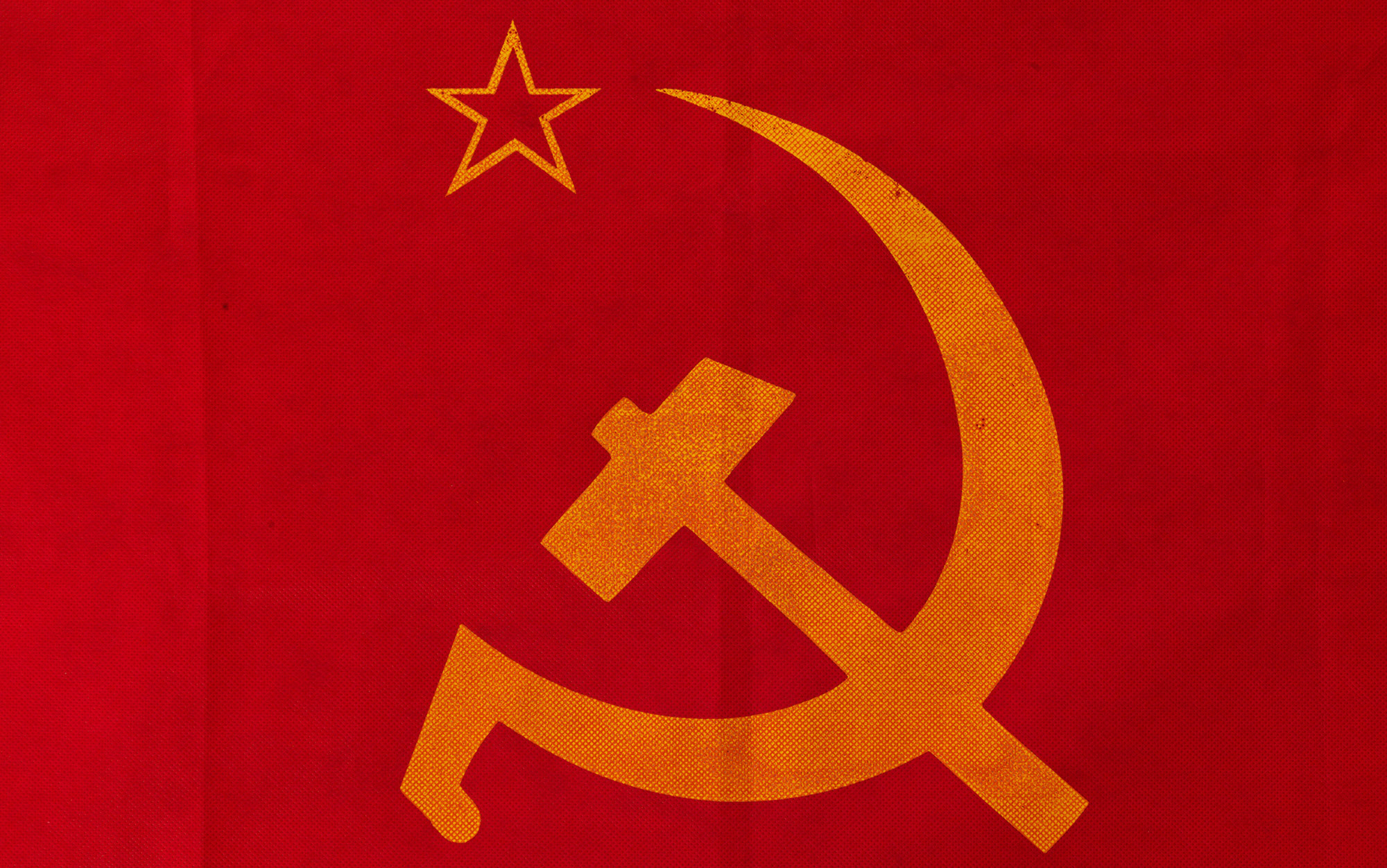The real problem was never about communism, it was about authoritarianism.
Authoritarianism is the enemy of everyone.
Everyone but the state, and unfortunately the capitalist states have much more power to push their narrative. Thus “communism” became the enemy to latch onto, and now it’s synonymous with Stalinism in the eyes of many.
Same thing happened with “anarchy” and it being synonymous with “chaos” in the eyes of many. But indeed, anarchy is order.
Edit: A quote from the linked article, absolute nonsense lmao.
On the Right stand the committed anti-totalitarians
That’s not entirely true. It’s possible to have a benevolent authoritarian government and an oppressive democratic one.
It’s not possible to have a benevolent authoritarian government.
It’s happened on incredibly rare occasion. The problem is they don’t stay benevolent; eventually the benevolent dictator dies or is deposed, and their replacement is never so kind
If they were so benevolent, they would give up the power that could be abused later. They just wanted to seem benevolent.
Authoritarianism always eats itself from the inside with corruption. Always.
Yes it is. I’m sorry your too narrow-minded to understand that.
It simply is not, it has never happened, anyone who is benevolent would give up power.
Can you have communism without authoritarianism though? How would distribution of resources be enforced without control?
Democratically.
How do you plan on suppressing the bourgeoisie after the revolution? What are you going to do when they roll up with tanks on your little hippie commune? Are you going to vote really hard at them?
After the revolution their resources would already be controlled democratically, there would be no bourgeoisie.
And what would you do, make a new bourgeoisie while pretending not to have one?
Your revolution isn’t going to last long if you think a vote or referendum can eradicate the bourgeoisie. The bourgeoisie, as a class, will not disappear solely due to democratic decision-making. They’re going to strategize and plan for a counter-revolution in order to regain what they’ve lost.
In addition removing the bourgeoisie alone isn’t enough. Capital is not solely tied to individual bourgeoisie, but rather a complex social force embedded in the structure of exchange value. Merely eliminating the bourgeoisie without addressing the underlying mechanisms that uphold capital will not prevent the emergence of a new capitalist class. And no, “voting” will not prevent this either.
In an anarchist framework, we understand that a revolution cannot be solely achieved through voting or referendums. Anarchism seeks to dismantle hierarchical structures and establish a society based on voluntary cooperation and mutual aid.
To address your concerns, anarchists recognize that the bourgeoisie will resist revolutionary change. That’s why anarchism advocates for a decentralized society where power is dispersed among communities, making it harder for counter-revolutionary forces to consolidate. Anarchists believe in direct action, self-defense, and community organizing to confront and neutralize counter-revolutionary threats.
Moreover, anarchism goes beyond removing individual bourgeoisie. It aims to eliminate the structural mechanisms that perpetuate capitalism. Anarchists advocate for the abolition of capital-generating private property, wage labor, and the state, which are fundamental pillars of capitalism. By dismantling these institutions and replacing them with non-hierarchical alternatives, anarchism seeks to create a society where capital accumulation and exploitation are impossible.
While voting alone cannot prevent the emergence of new capitalist classes, anarchism emphasizes grassroots organizing, communal decision-making, and direct participation in shaping social and economic structures. Through these means, anarchists strive to create a society that is fundamentally egalitarian, cooperative, and resistant to the reemergence of capitalism.
Ultimately, anarchism seeks to foster a society where power is decentralized, individual autonomy is valued, and economic relations are based on solidarity rather than exploitation.
To address your concerns, anarchists recognize that the bourgeoisie will resist revolutionary change. That’s why anarchism advocates for a decentralized society where power is dispersed among communities, making it harder for counter-revolutionary forces to consolidate. Anarchists believe in direct action, self-defense, and community organizing to confront and neutralize counter-revolutionary threats.
If anything this makes it even easier for counter revolutionary forces to consolidate. With the revolution pulling itself in umpteen different directions, you have no coherent programme at all. That ignores the fact that anarchists can’t even agree on anything amongst themselves, let alone that capitalism should even be abolished at all without even realizing it. Many of them believe that commodity production is fine, because they think it’s merely a policy issue or that capital can be “democratically controlled” or whatever.
Up to this point we’ve assumed that an “anarchist revolution” was even able to make it this far, but even that seems laughable.
Moreover, anarchism goes beyond removing individual bourgeoisie. It aims to eliminate the structural mechanisms that perpetuate capitalism. Anarchists advocate for the abolition of private property, wage labor, and the state, which are fundamental pillars of capitalism. By dismantling these institutions and replacing them with non-hierarchical alternatives, anarchism seeks to create a society where capital accumulation and exploitation are impossible.
Anarchists have a superficial understanding of private property, wage labor, and the state. The fact you think these are “institutions” is evident of that enough. An “anarchist revolution” would simply re-create these under a different name or wind up serving the counter-revolution.
While voting alone cannot prevent the emergence of new capitalist classes, anarchism emphasizes grassroots organizing, communal decision-making, and direct participation in shaping social and economic structures. Through these means, anarchists strive to create a society that is fundamentally egalitarian, cooperative, and resistant to the reemergence of capitalism.
What does any of this even mean lol. Who knows how all that fluff will accomplish what you’re talking about. You might as well just say we’ll sustain the revolution by holding hands and singing kumbaya.
The bourgeoisie are by definition a minority. In a non-corrupt democratic system with a well-informed populace, their power is negligible.
That answer assumes democracy can’t be authoritarian, which isn’t true.
Authoritarianism and democracy are directly incompatible.
How so? If the majority votes in authoritarian laws that are violently enforced on minority populations, is that not authoritarian?
No, because a simple majority could also reverse them, it wouldn’t be authoritarian, it’d be fascistic.
I know Wikipedia isn’t the ultimate arbiter of truth, but this is how it’s article on Fascism begins, and I think it would be fairly common for people to consider fascism a form of authoritarianism:
Fascism is a far-right, authoritarian, ultranationalist political ideology and movement,[1][2][3] characterized by a dictatorial leader, centralized autocracy, militarism, forcible suppression of opposition, belief in a natural social hierarchy, subordination of individual interests for the perceived good of the nation and race, and strong regimentation of society and the economy.
FWIW I’m not meaning to attack democracy here, I find it to be far preferable to the other systems we have at our disposal. But it is a tool that can be used for good or bad.
Yes.
Can you have communism without authoritarianism though?
well, we’d have a more settled answer if historically communists of all stripes weren’t immediately persecuted wherever they win power (whether democratically or through revolution), but Revolutionary Catalonia strongly suggests the answer is yes. its most anarchist regions successfully managed themselves pretty well for more than 2 years during a vicious civil war before being crushed, and those are the literal worst circumstances possible to try and build an egalitarian, stateless, classless society in.
(also ironically, the anarchists in Catalonia sometimes had to fight the Marxist-Leninists who were ostensibly united with them against the Francoists, because the two sides had such radically different visions of society)
Didn’t expect to see this in beehaw. I’m really confused with lemmy’s ongoing drama. D:
Well, authoritarianism isn’t the enemy of the authorities. It usually works out quite well for them, at least for a while. It’s definitely detrimental to society as a whole though, where communism is generally neutral (though more easily abused than capitalism).
We already live in a nightmare capitalist autocracy and people still fearmonger about the USSR.
That’s because it’s demonstrably worse than capitalist autocracy. Communism itself isn’t a problem, but it has yet to function properly at a state level; China came the closest, but that was still based on stratification and a ruling elite. And now it has the worst of capitalism as well.
Communism is on the same level as Nazism. Evil and rotten to the core.
I swear the instances better actually start moderating or are all the lemmy mods fucking communists…







